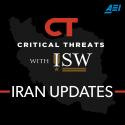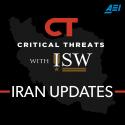Salafi-Jihadi Movement Weekly Update, February 22, 2023
Feb 24, 2023 - ISW Press
Iraq. The Iraqi Security Forces’ (ISF) inability to defeat ISIS in the northern Baghdad Belts could allow ISIS to attack Baghdad itself. An ISIS attack against Baghdad would be a propaganda boon for the group, while possibly triggering sectarian violence and ISF command changes that could improve the group’s position. The level of ISF pressure on ISIS in the northern Baghdad Belts is likely sufficient to disrupt ISIS attacks against Baghdad, though ISIS is attempting to undermine ISF cohesion in the area. ISF is unlikely to defeat ISIS without a major operation involving capable Iraqi Army forces. ISIS will continue to be able to resupply its attack cells and attack ISF forces in the northern Belts without a major counter-ISIS operation.
Sahel. Jama’at Nusrat al Islam wa al Muslimeen (JNIM) is likely consolidating control over rural areas of southeastern Burkina Faso. The group is likely using these expanded havens to increase activity in neighboring regions of Burkina Faso and the littoral states. A Burkinabe overemphasis on military solutions without successfully addressing underlying social issues risks backfiring, inflaming local tensions that feed JNIM recruitment in the area.
Pakistan. The Tehrik-e-Taliban Pakistan (TTP) conducted its most deadly attack in Karachi in southeastern Pakistan since 2016, indicating an expansion of TTP attack zones and an increase in TTP capabilities in Karachi. Pakistani security forces will likely conduct counter-TTP operations in Karachi in the near term. Pakistan could strike TTP militants in Afghanistan in a less likely scenario. Pakistan continues to seek engagement with the Afghan Taliban on terrorism-related issues, and a Pakistani attack in Afghanistan could undermine discussions between the two sides.










